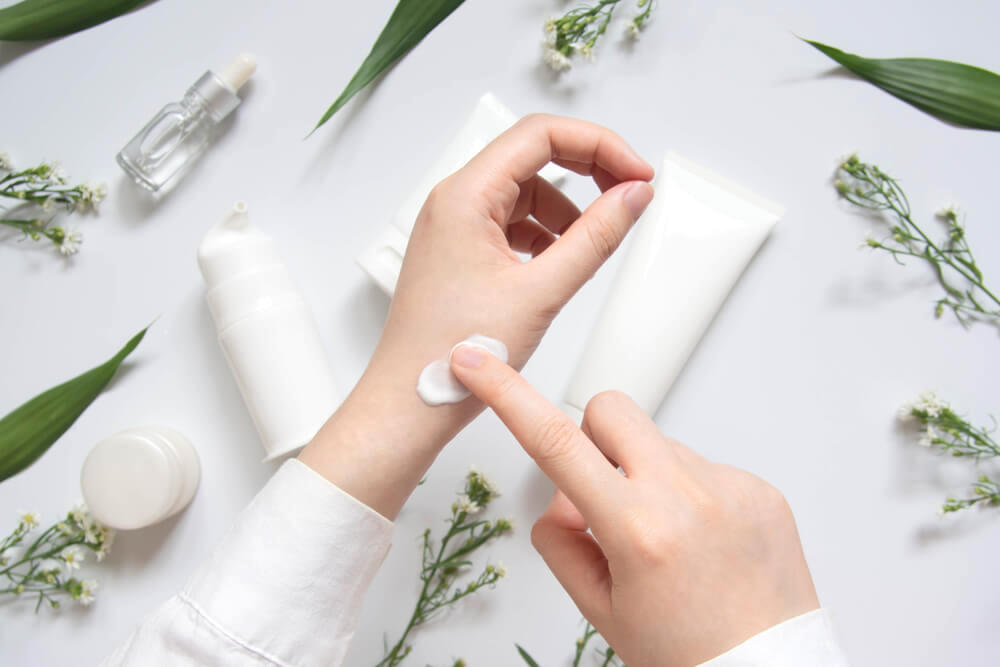1. Moisturizing
Hyaluronic acid (HA) is a classic moisturizer widely praised for its ability to retain moisture. HA can hold 1,000 times its own weight in water, making it key to hydration. HA’s water-locking ability aids wound healing by maintaining a hydrated environment conducive to cell repair.
2. Acne removal
Salicylic acid is highly regarded in the treatment of acne. This beta hydroxy acid (BHA) exfoliates the skin, unclogs pores, reduces sebum production, and prevents acne from forming. The anti-inflammatory properties of salicylic acid also help soothe irritated skin.
3.Soothing
Allantoin is derived from the comfrey plant and has very potent soothing properties. It helps relieve skin irritation and is used to treat dermatitis, eczema, and other inflammatory skin conditions.
4.Repair
Centella Asiatica or Gotu Kola is a powerful repair agent used in skin care products for its wound-healing abilities. It promotes collagen synthesis and promotes cell turnover, which makes it effective in treating scars, burns, and minor cuts.
5. Anti-inflammatory
Niacinamide, also known as vitamin B3, plays a vital role in reducing inflammation. It soothes redness and blemishes and is beneficial for conditions like rosacea and acne.
6. Antioxidant and anti-aging
Vitamin C is a potent antioxidant with numerous benefits in skin care. It neutralizes free radicals, thereby preventing oxidative stress that causes premature aging. Vitamin C also stimulates collagen production, increases skin elasticity, and reduces fine lines and wrinkles.
Taken together, incorporating these cosmetic ingredients into skin care regimens not only enhances aesthetic appeal but also provides significant medical benefits. From hydrating to anti-aging, these ingredients prove the double duty modern cosmetics can pull off. By harnessing their full potential, we can look forward to a future where skin care and healthcare are synonymous.
Post time: Oct-18-2024




